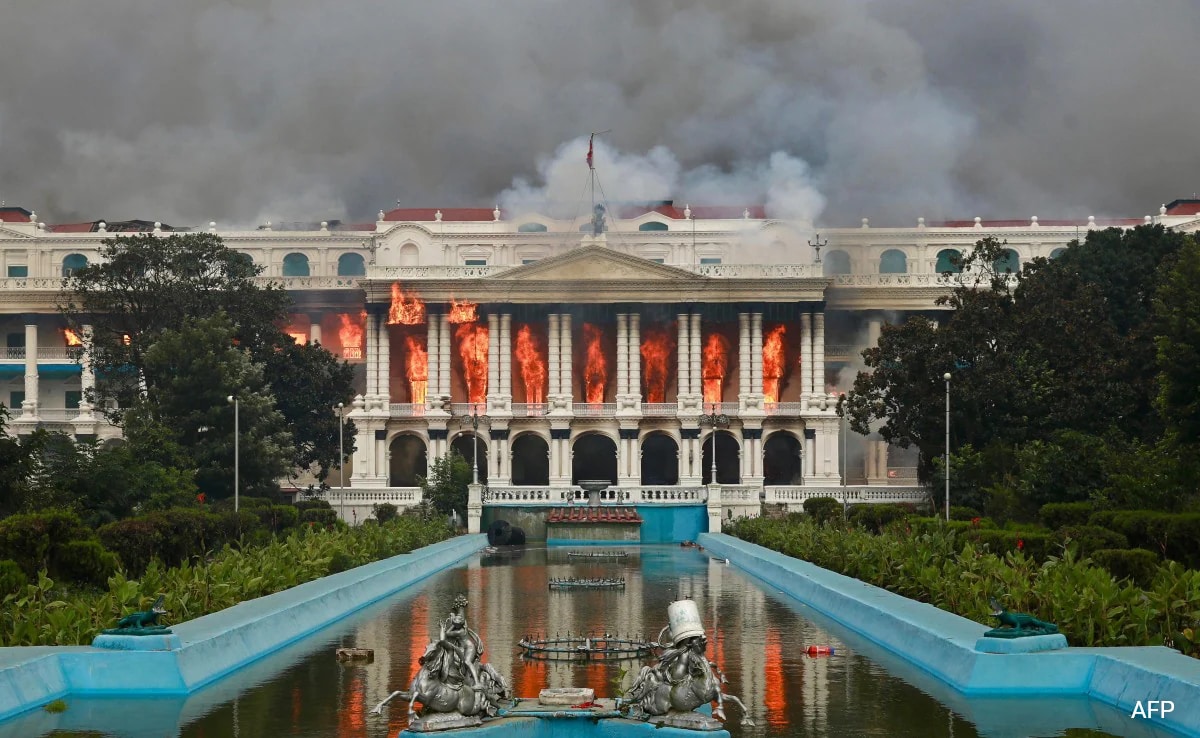Like Olympic sprinter Krystsina Tsimanouskaya, who defected from Belarus during the Tokyo Games in August, the theater company members hope to base themselves in Poland and have applied for humanitarian visas.
The Belarus Free Theater had carried on despite being banned for years in its home country. The company courted audiences through the Telegram messaging service and staged productions at secret locations — in homes, garages, courtyards, forests — often with a minivan waiting nearby to whisk the actors away if needed.
The Belarusian KGB stormed its shows, arresting both performers and people in the audience. Company members were arrested, too, for participating in anti-Lukashenko protests. It was after one such round of arrests that the husband-and-wife artistic directors claimed asylum in London in 2011. And still the company kept going, working with the exiled directors by Skype.
But the directors said Monday that things had become too dangerous for the performers to stay in Belarus.
“We had to do an emergency exit,” said Natalia Kaliada, 47, who founded the troupe with her husband, Nikolai Khalezin, 57.
The performers are currently in London, rehearsing for a production that was postponed by the pandemic and is now scheduled to be staged at the Barbican theater in March.
The play is called “Dogs of Europe” and is based on a novel by Alhierd Bacharevic about an authoritarian regime. The book is banned in Belarus. The play will be live-streamed, and, the theater company hopes, watched by the resistance back home.
The troupe also has a large international following. It has performed in more than 40 countries, having toured in both Europe and the United States.
The directors befriended Czech-born British playwright Tom Stoppard, who offered an introduction to Nobel-winner Harold Pinter, who agreed they could incorporate his work into one of their early productions. The resulting play, Stoppard told the Guardian, “knocked me out.”
The company has also found champions in the likes of Jude Law, Hugh Grant and Mick Jagger, as well as financial support from individual donors and foundation grants.
When the ensemble performs abroad, it is not banned from charging admission, as it is in Belarus.
Looking on during a rehearsal in London, Kaliada detailed the company’s past run-ins with state security services.
“He was beaten up by riot police. She had a criminal case opened against her yesterday. He was arrested for wearing white and red socks,” she said, nodding in the direction of various cast members.
White and red in combination has become a symbol of the protest movement. In a window of the rehearsal space in London, the performers have hung the red-and-white flag adopted by Belarus in 1918 and claimed by the opposition as the legitimate state flag, in contrast to the red, white and green flag adopted in 1995.
The Belarusian opposition has been thriving in exile.
Svetlana Tikhanovskaya, who maintains she won the presidential election in 2020, has been using Lithuania as a base from which to travel around the world. She met with President Biden in Washington. She was greeted with a standing ovation in the European Parliament. And when British Prime Minister Boris Johnson welcomed her to Downing Street, he told her, “We are with you.”
But the number of opponents leaving the country is a sign of the climate inside it.
“They are eviscerating civil society,” said Tanya Lokshina, a researcher for Human Rights Watch. She said that since the contested election last year and the protests that followed it, the government had closed more than 300 NGOs and shuttered dozens of media groups. About 150,000 Belarusians have fled to Poland and tens of thousands are in Lithuania, she said, adding, “the numbers are staggering for a small country like Belarus.”
Viasna, a human rights group in Belarus, says there are almost 900 political prisoners in the country, including many of its own activists.
Dasha Andreyanova, 29, a singer, actress and filmmaker with Belarus Free Theater, said the first time she was arrested after the 2020 election, she was strip searched and then put in a jail cell for five days with 35 others — three of those days without food and water. She said she was released after signing document acknowledging that if arrested again she could face five years in prison. “It was not human,” she said of the conditions, speaking through a translator.
Svetlana Sugako, 36, the Belarus Free Theater’s managing director, was also arrested after last year’s election. When she refused to sign a similar document about jail time if arrested again, she said a police officer wrapped her arm around her neck until she could not breathe.
The company continued to perform inside Belarus until a few months ago. But when Sugako’s apartment was raided in August, the co-founders in London decided they needed to get everyone out of the country for fear of even harsher measures.
The company members have always been careful when leaving the Belarusian capital Minsk to perform abroad, for fear of being arrested or blocked at the airport. They have often used ground transportation to reach neighboring countries and flown out from there.
This time, some of the actors said they made their way through four different countries. They said they did not want to discuss publicly the specific routes they used, because others continue to try to leave that way.
Asked if this exit meant that Lukashenko had won, Kaliada said, “No, no, no.”
“The whole company could stay inside Belarus and be in jail and there would be nothing for our audience,” she said. “Or, we could be outside Belarus, create online content and inspire our audience. Our job is to continue.”
.png)











 English (United States) ·
English (United States) ·  Turkish (Turkey) ·
Turkish (Turkey) ·